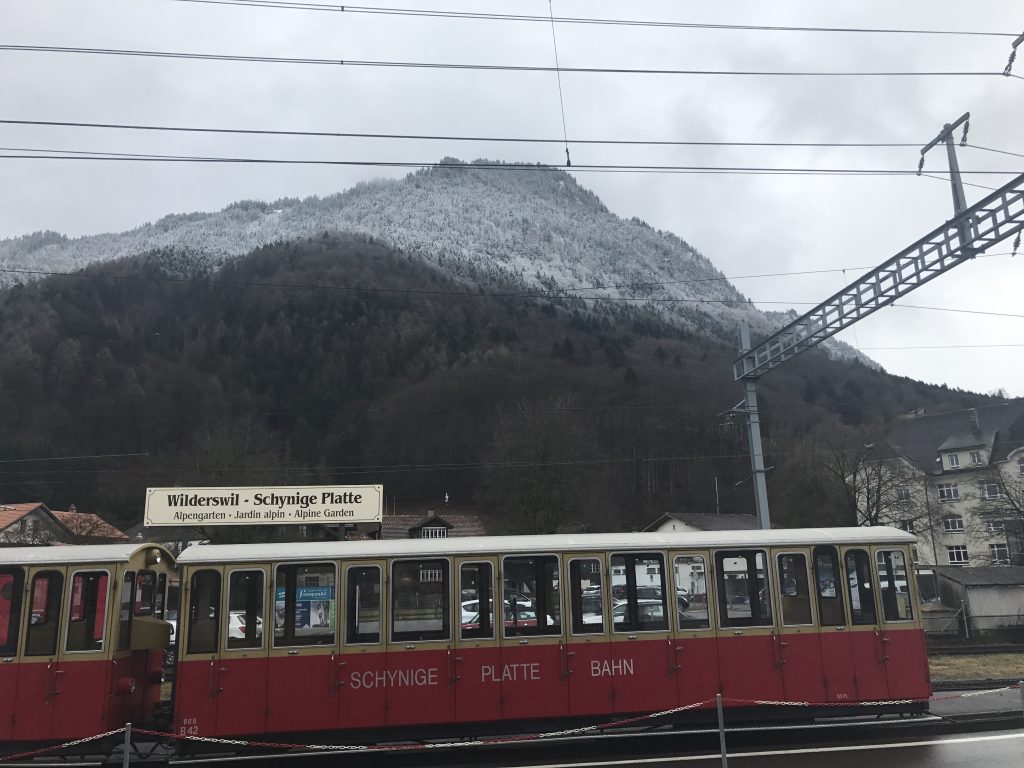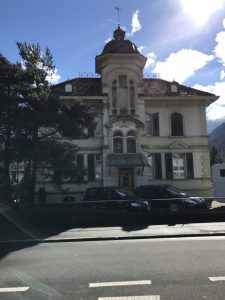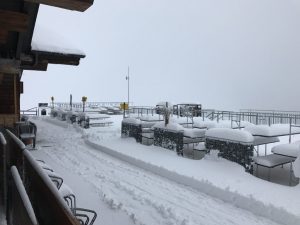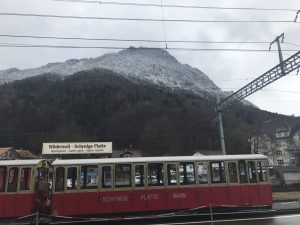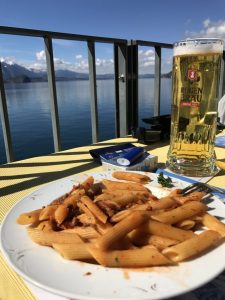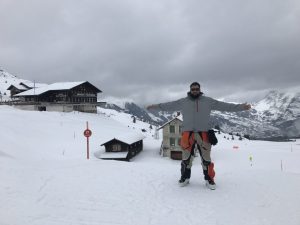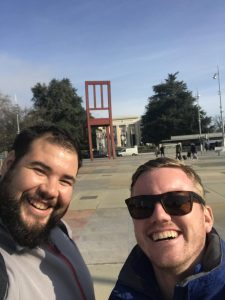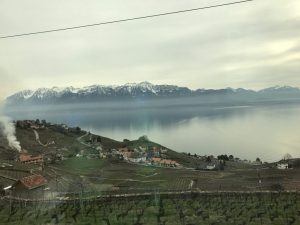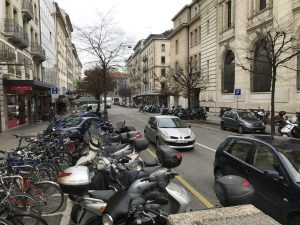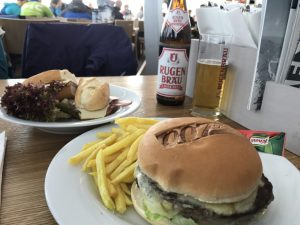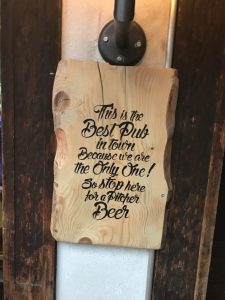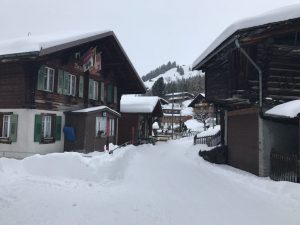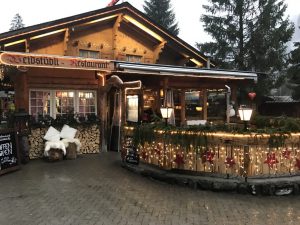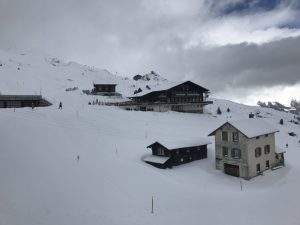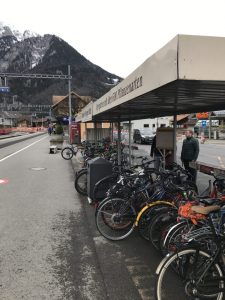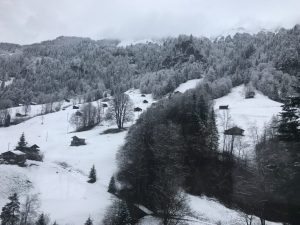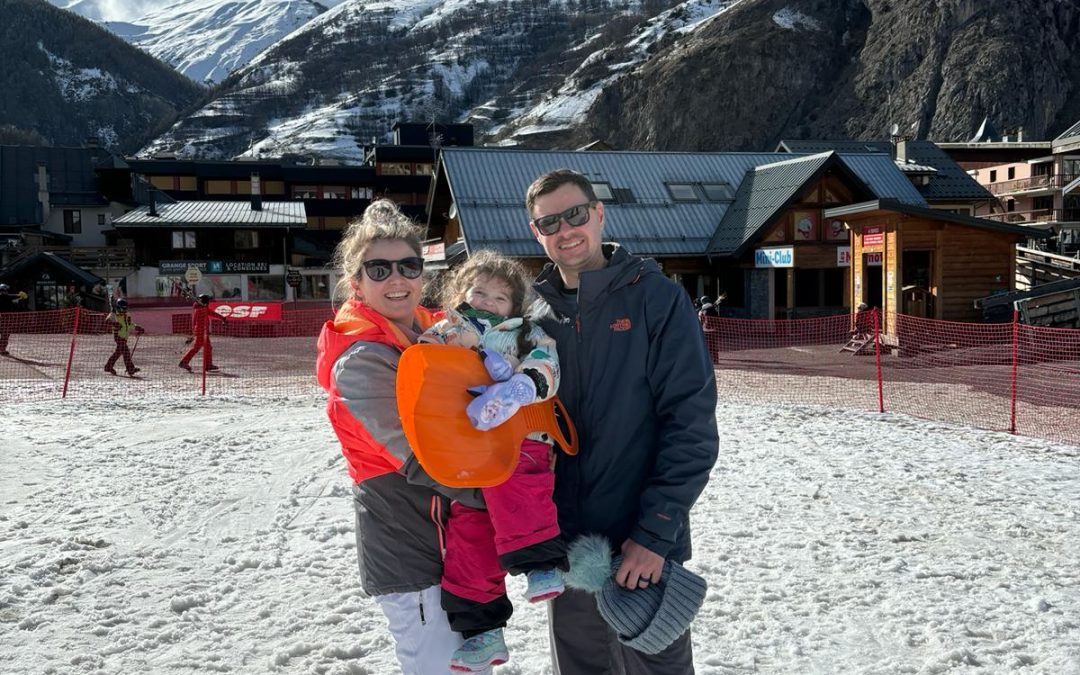By Leomar van Schalkwyk
How it came about …
From a WhatsApp message in December to boarding the aircraft in March … from the Drakensberg to the Alps! My first tour overseas was really an eye-opener; something that showed me how small my world really is. And how I only thought that I was informed. It was an experience of learning how much there still is to learn. An experience to make friends with fellow-countrymen whom I never knew we had lost. An experience to move about comfortably in another world because of my language.
My first trip abroad had its origin in a WhatsApp message. Thanks to my friend Jannie, his sister and her four pals, who were strangers to me at the time. But now they are anything but strangers!
Jannie and I – like many others – never even thought of venturing into the world across the oceans any time soon. But that message got the ball rolling.
That message was an advertisement of the Alpenrose Hotel and Gardens in Wilderswil, Switzerland, in which the hotel marketed its South Africa week. “How peculiar!?” I at first thought. The ad offered very affordable prices and even an evening with bobotie! The South Africa week is held in Wilderswil each year at the beginning of March.
After some research I learned that the hotel was owned by two South African expats, Carel and Ryan. Carel also owns a business called Expat Explore Travel, which took the tour to a next level. They also offer tours around the world, which are joined by many South Africans.
The ad hooked me and the decision was made! I’m going skiing!
Then came the hard part …
Ask anyone who knows me whether Leomar likes flying, and the answer will be a loud NO! But after a day’s thorough research on the safest airline with the most legroom, we bought the tickets. Nevertheless, my 193 cm long body did not sit too comfortably. The tickets from Johannesburg to Geneva via Zurich were purchased at the last minute (a month ahead).
With the help of friends’ knowledge I also had to run around for a new passport and visa, because the expiration date of my passport was too close to the date of our return flight. But the procedure was quick and smooth, and within two weeks I received both. TLScontact was excellent with the visa process.
With that, all arrangements were in place. All I still had to do, was to sort out my money at the bank. That was also fairly simple. I learned that although Switzerland used the European visa, namely the Schengen, the acceptable currency was Swiss Franc (CHF) and not euros. My savings were therefore converted to CHF.
Always try to ask someone knowledgeable what is required for such a tour. A friend’s mother gave me a list of items of which I would need on a skiing holiday. It was worth the effort! And voila – I was ready for Switzerland! My leave was organised and my suitcases were packed.
As fate would have it, I was diagnosed with bronchitis on the morning of the flight. After a call to the doctor, I was sorted out with medication and with a prescription to take with me on the plane – as evidence that I had permission to carry the medication.
On the flight I had to resort to Rescue drops and a fizzy drink or two for my state of mind, however. And with that, I could tick off yet another item from the bucket list: flying overseas. Fortunately, we were on a night flight.
After our delicious meal, Jannie and I took our sleeping pills and only woke up for breakfast just before landing – not at all the type of flight to which I objected all these years. A quick connecting flight, and we were in Geneva.
Jannie and I were nine hours ahead of the rest of our group; so we could explore the essentially francophone city and even tick off a few more items from our bucket list – like the UN building Palace of Nations, with the broken chair as a symbol of the international opposition to the use of landmines; and the Jet d’Eau fountain in Lake Geneva. It took us a while to get to know the transport schedule. We could indeed feel that we were no longer in our homeland. But after a hilarious incident, we learned that Afrikaans-speaking people were to be found all around the world!
After that, we welcomed our tour group at the airport as though we knew Geneva and the country like the palm of our hands … Full of bravado, we got on the train to Wilderswil, although not after struggling to get tickets to our destination: we kept mispronouncing the name of our destination when talking to the agent. It turned out that the name of the town actually should sound like “Vealdersveal”.
The route took us along Lake Geneva to Bern, where we boarded the train to Interlaken, with a short trip from there to Wilderswil. Wilderswil is barely 4 km from Interlaken. On the way we saw everything from city graffiti to rolling hills, and the only connection with our home was the Afrikaans we were speaking to one another.
As a South African, it is difficult to understand how such a small country can be so famous. People in Switzerland do not travel much locally, but due to the long distances in South Africa, the situation is different in our homeland. Switzerland is only 41 285 square kilometres in size, compared to South Africa’s 1,22 million square kilometres.
Upon arriving at our hotel, we rushed to go get our “ski armaments” as the New Zealand supplier calls it. So we found out that many of our rugby enemies live here. On our return we explored the hotel and we met our tour guide and owner of the hotel, Carel. Carel briefly explained to us how the skiing and the area worked. The next day the group faced their first lessons, while I remained behind, sick in the hotel. Back at the hotel, Jannie explained with childlike excitement how the first day proceeded.
On day 2 we met the other tourists and learned that we had a lot in common – with one or two exceptions, we were all born in South Africa. There were 24 South Africans in the group, and Afrikaans was heard everywhere in the hotel.
During the eight days that we were in the Alpenrose in Wilderswil, we went skiing in different villages in the Jungfrau area each day. Carel’s skiing lessons quickly made us capable skiers. Lauterbrunnen, Wengen, Männlichen, Kl.Scheidegg, Grindelwald and Murren are some of the towns we visited and where we went skiing. One can ski from one town to the next, and the towns are connected via cable cars or trains.
It was a big adjustment for me to ride the ski lifts and gondolas (another item ticked off my bucket list!). My fear of flying is accompanied by my fear of heights, and that fear was severely tested when we tried out the gondolas to the James Bond museum and Piz Gloria Restaurant at Schilthorn, which lies on 2 940 m. The restaurant turns 360 degrees in an hour, making it a breath-taking viewpoint.
We put away our skis for two days to explore Interlaken and the northern banks of the Thunersee (Lake Thun). In German, Interlaken literally means “between two lakes”. Interlaken got its name because it lies between the Thunersee and Breinzersee. The town and the lake are picturesque. And for a while I could put myself in that picture too, at the Italian restaurant in Beatenberg. Here we could see the difference in terms of lifestyle and culture, because here we met local people and not other tourists, as in the mountains.
We spent our last day in Interlaken, where we bought gifts to take back to our loved ones at home. We began missing home, but at the same time could not believe that our short time here had come to an end.
What I noticed …
People here ride bicycle or walk to transit points. Pedestrians enjoy priority on the roads. Even in busy streets, vehicles would stop for pedestrians at pedestrian crossings. Children walk to bus stops or to school on their own, without being accompanied by a parent.
People walk in the streets drinking a beer, although we felt like criminals when we dared to do it – especially when we came across two policemen on the bus! Teenagers may drink beer or wine from the age of 16.
Only small quantities of meat are used in the food, but there is a wide variety of food cultures to choose from, for instance Italian, Indian, Irish etc. And many restaurants serve everything from pizza to kebabs; from pork schnitzels to horse steak!
The Swiss are very set on being on time with everything. Yet, nobody is rushed for anything, because it is not necessary to hurry anywhere if everything happens on schedule. There is no African time here.
Wilderswil …
Wilderswil is a small, quiet town just before entering the mountains. The town is characterised by unique wooden houses, decorated with personal items, with the snow-covered mountain in the background. The town follows a minimalist lifestyle, and has few shops. All noise (if any!) must stop by 10 in the evening. Even the fountains in the gardens must be switched off punctually at 10 pm. The residents are quite comfortable with the situation in their town, and they meet up with one another at the restaurant or bar each week, to keep in touch.
Carel and the Alpenrose staff managed to create somewhat of a “’home” for us South Africans in Switzerland, but we were also taken on a journey of food and drinks every night. Everything was served, from real Swiss fondue (a little salty for my taste), to a German dinner with schnitzels, to South African bobotie and banana salad. And every meal was complemented with the appropriate drinks.
The mountains …
On our arrival, the foothills were still rather colourless, but the steep uphill train ride was nonetheless beautiful. The towns higher up showed signs of snow here and there. But after it had snowed, the pale green hills were covered with a thick layer of snow. The towns became more colourful and vehicles sounded different with their chain wheels on the tarmac. One experiences a totally different feeling. The snow brought calm over the area, but that calm faded quickly as the train went higher up the mountain. The calm then made way for the excitement and fun of hundreds of people who thoroughly enjoyed themselves on skis, snow boards and sleds. Tourists took thousands of pictures, hoping to capture that feeling through a camera lens.
Final thoughts …
My first tour abroad made me realise that there is a world out there that of which I would like to experience more. I want to tour places where I can meet new people and have new experiences. The people I met on the tour, gave me a different perspective on life. And I know some of them will remain my friends for a long time to come. Even though those people no longer live in South Africa, they are very well informed about what is going on here. The expats we met, still have an emotional bond with the country. It makes me proud to say that this country is still my home.
The experience also made me aware of how narrow one’s mind-set can be here in South Africa. There are people in other countries who also think and live like we do: we are not alone.

